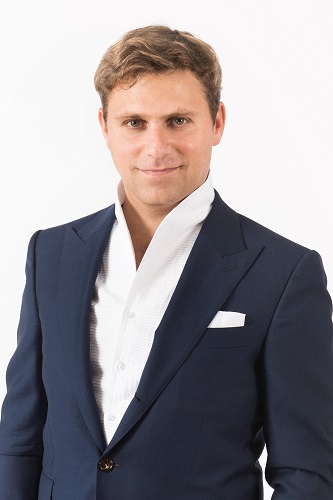Interview: Yvonne from Hunnius

How will Mindfire decipher the brain code where so many others have failed?
Pascal Kaufmann: Until now, numerous isolated laboratories around the world have been working in companies and universities under the assumption that the brain works like a super-fast computer. But it would seem that there is much to be said against this approach. We believe that it’s necessary to take a new approach, that the brain-computer analogy has set us back decades rather than allowing us to make qualitative progress. We believe in the power of networked talents, and which we are bringing from all over the world to Davos for meetings – or what we call ‘missions’. Together we want to ask new questions, answer them and build prototypes there. The solution to human-like artificial intelligence could be simpler than many suspect.
... and why is the Greater Zurich Area the best place for Mindfire?
Switzerland and specifically the Zurich region have an excellent reputation in this field. There are good reasons why players like Google or Facebook are active here. Take a look at research publications, many of which come from the two Federal Institutes of Technology and the University of Zurich. Although researchers in Switzerland don’t publish as much as researchers in the U.S. or China, the Swiss are the second most cited in the world – in other words, there’s a very high concentration of important work going on here. This fact, coupled with the international reputation of Davos, should help further entrench Switzerland as an epicentre in the field of artificial intelligence and attract talent from all over the world.
Why are you using a token?
With Mindfire, all ideas are systematically stored on the blockchain, on what we call a Mindfire Token. When hundreds of talented minds come together in Davos starting in May and someone comes up with a groundbreaking idea, then it will be recorded. This ensures that the person behind the idea receives recognition and no else can claim it. This will also motivate the very best people to take part.
Have the very best actually responded to your call?
We’ve received several hundred highly fitting applications from all continents. There’s a large amount of diversity, which is a key success factor: the spectrum ranges from 15-year-old secondary school students to PhDs in philosophy or neurosciences, and even 70-year-old retirees. The selection process runs until the end of March. We’re building a talent pool that will feed into all Mindfire missions. Then preparation starts for the missions. There will be a dedicated digital network in which all talents in the field of artificial intelligence or AI can exchange information on a permanent basis.
With ten missions, can we expect concrete results after just the first one?
As a support system for artificial intelligence, we want to create an autonomous, artificial organism. It should be able to maintain itself by means of solar energy and make a contribution to the economy. For example, we’ve been working on drones for the past few months, and the first prototypes are now ready. We very much hope that the corresponding system will be made real in the first or second mission.
The participants pay nothing – who is paying for everything?
Mindfire has a very broad support base, from single municipalities, cities, cantons, companies and organizations through to individuals. The topic is highly relevant and concerns us all. In addition to companies such as the bank UBS, the engine manufacturer Maxon or the health insurance company Helsana, authorities and associations are also involved. The location promotion organization Greater Zurich Area, the business association Economiesuisse, even two of the three founding cantons of Switzerland are on board. Of course, everyone is welcome to contribute to the global race for AI, but it’s important that Switzerland play a leading role. Our world will look different and the image of human beings will change. The best strategy to avoid being overtaken by events is to shape them. We have to be at the forefront of this. The race for human-like artificial intelligence hasn’t really started yet – we need to seize the moment.
About:
Pascal Kaufmann is the founder and president of the Mindfire Foundation. He studied biology at ETH Zurich and Northwestern University in the U.S. state of Illinois, specializing in brain research. He co-founded Starmind in 2010, an AI company that provides self-learning know-how networks for companies. He spent several years contributing to the construction of humanoid robots and neuronal networks at the Laboratory for Artificial Intelligence at the University of Zurich.
More News
Meet with an expansion expert
Our services are free of charge and include:
- Introduction to key contacts in industry, academia, and government
- Advice on regulatory framework, taxes, labor, market, and setting up a company
- Custom-made fact-finding visits, including office and co-working space